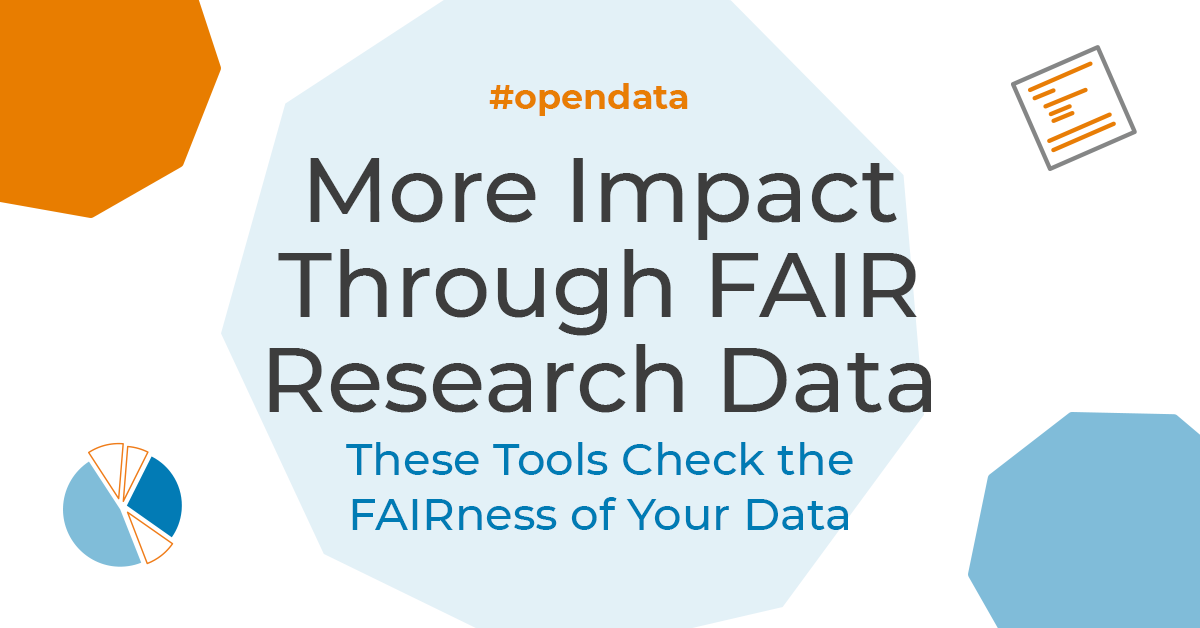What do the FAIR principles mean in practice and how can they be applied correctly? There are a number of things to consider when preparing FAIR research data. Luckily, you do not have to do everything on your own. Some helpful tools support you. These analyse, for example, how FAIR your data already is and give you practical tips for improvement.
If you publish your research data openly, transparently and thus FAIR for third parties, you will benefit from more visibility for your own work – and possibly from higher citation rates as a result.
But how can research data actually be made FAIR? Or how can you check afterward whether a dataset actually meets FAIR standards? The good news is that there are some practical helpers nowadays that can help you answer these questions.
That is because some of these tools analyse the FAIRness maturity of your research data, while others help you with self-assessment. Still others help you expand or review your knowledge of FAIR.
The Open Economics Guide tool collection includes dozens of useful tools to simplify your Open Science practice. You will find below a selection of these tools that can help you specifically in creating FAIR research data. This selection is open to further suggestions, which you are welcome to send to the Open Economics Guide team.
Get started right away and get ideas for improvements with little effort!
Analysis tool: Test the FAIRness of your data – and improve it
F-UJI
With F-UJI you can determine the FAIR maturity level of a data set. To do this, enter the persistent identifier (such as a DOI) or a URL of the dataset in the search slot. F-UJI then checks whether or to what extent the FAIR criteria are met by the dataset, or reports back where it is unable to make an assessment. This gives you an impression of the extent to which you have already applied the FAIR principles well in the data set and at which points you should take another closer look.
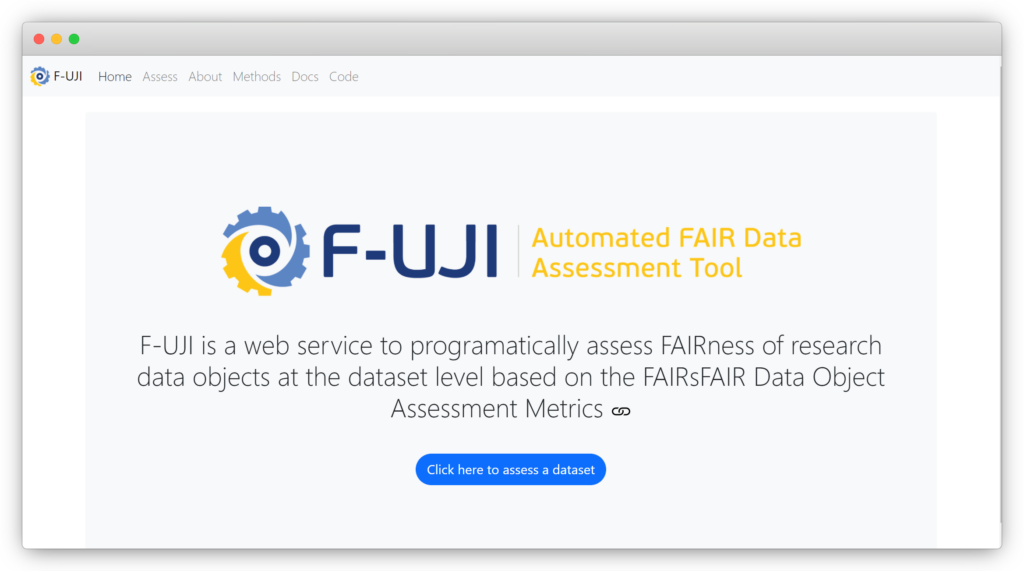
Self-assessment tools: Check how FAIR your research data is
ARDC FAIR Data Self Assessment Tool
The ARDC FAIR Data Self Assessment Tool from the Australian Research Data Commons allows you to determine the "FAIRness" of a dataset. To do this, you answer a series of questions and, with the support of the tool, you can find out how to improve the FAIRness of that dataset, if necessary.
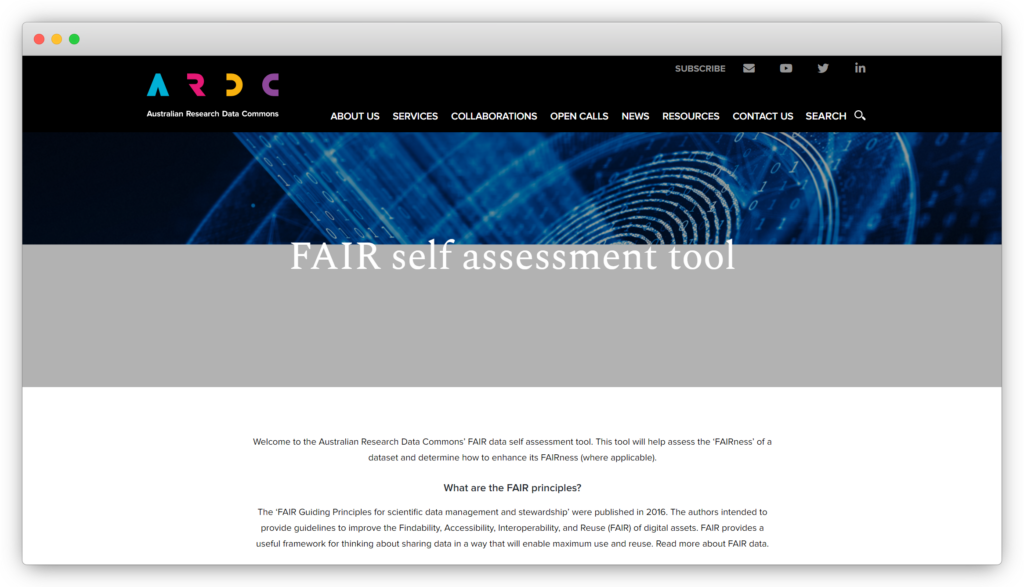
SATIFYD
SATIFYD - Self-Assessment Tool to Improve the FAIRness of Your Dataset is another self-assessment tool. By answering twelve questions, it helps you to find out whether your own research datasets comply with FAIR principles. It also provides you with tips that can help you improve your FAIRness even further.
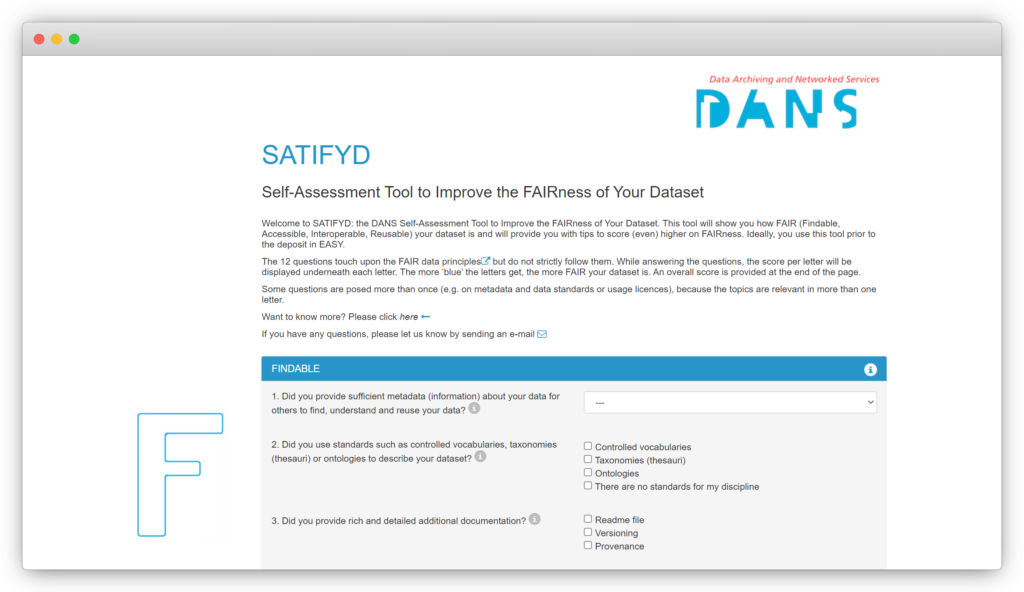
Knowledge test tool: Test your knowledge about FAIR
FAIR-Aware
FAIR-Aware is an online tool that helps you test your knowledge about how to make datasets FAIR before uploading them to a data repository. To do this, FAIR-Aware includes ten questions enriched with additional information and practical tips about FAIR data.
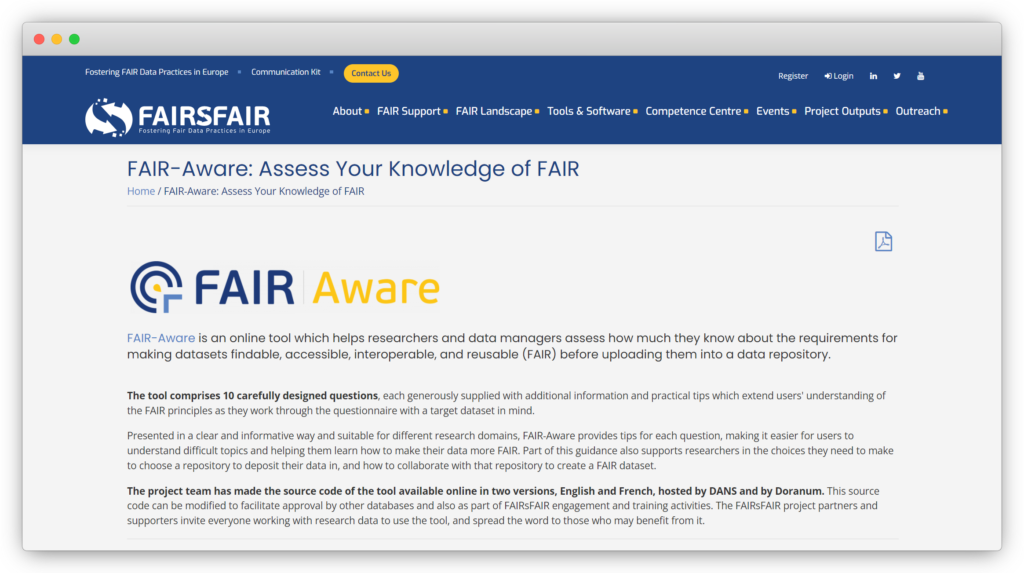
More tools and information for FAIR data:
FAIRassist.org lists other resources that help one measure and improve the FAIRness of data.
Are you interested in more information about FAIR data? Find more information on how to make data FAIR in the Open Economics Guide introduction!
